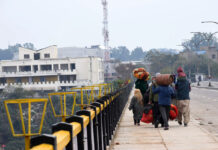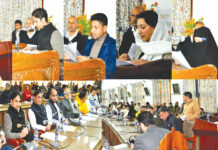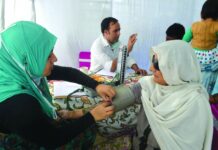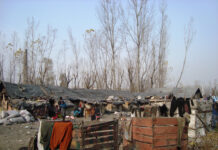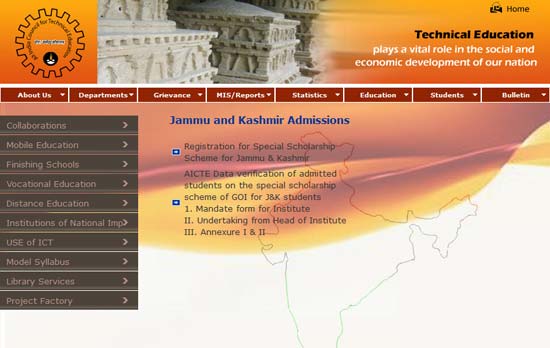A study, for instance, by noted educationist Prof Abdul Gani Madhosh in 1995 put the figure of orphans around 35,000. By his account, the number of these vulnerable children doubled to 65,000 by 2005. Social activist A R Hanjura contends that no door to door survey has been conducted to find out the exact number of orphaned children so far. “There is a general speculation that the number of orphans in Kashmir at present is a staggering 80,000,” he says. United Nations Children’s Fund (UNICEF) maintains that the Kashmir valley has over 100,000 orphan children. All these accounts point to social catastrophe that Kashmir is struggling to deal with.
Another disconcerting fact is that the suffering of 15,308 orphans of slain militants is accentuated by government neglect. Hanjura blames the state government and New Delhi for exhibiting double standards in implementing welfare policies for orphans.
The government provides scholarships to orphans through the National Foundation for Communal Harmony. “These 15,308 children are discriminated on the ground that they belong to families of slain militants,” says Hanjura.
In some cases these deprived children are not able to procure state subjects. Sample survey conducted by Jammu and Kashmir Yateem Trust, in three most affected villages, further reveals the apathy.
In the village Dardapora in northern Kupwara district, there are 122 widows and 304 orphan children who live a life of misery and acute poverty. The 218 orphans in the village Derverinderbugh in Lolab area of Kupwara, don’t have any source of income. At village Lam in Tral tehsil of southern Pulwama, 275 orphans have not received any kind of relief from government.
Origin of orphanages
Orphanages are a recent phenomenon in Kashmir. Before the armed uprising, orphans were generally adopted by one of their relatives or neighbours. The social structure and cultural values would not allow people to send homeless children to orphanages. In fact, only one orphanage existed in Srinagar city before 1989. More than 20 orphanages exist in valley now catering to the basic needs of around 1500 children.
Psychiatrists, however, believe that orphanages are not the ideal places for children. “I would cherish to have Kashmir without orphanages,” says noted psychiatrist Dr Arshid Hussain. “I have observed that loss of parent exposes child to long term psychological disturbance. It is far better that these children are nurtured in normal family environment than destitute houses or residential institutions like orphanages”.
With the burgeoning number of orphan children making foster care and adoption impracticable, orphanages have emerged as the only viable means of survival for such destitute children.


